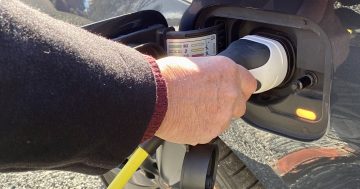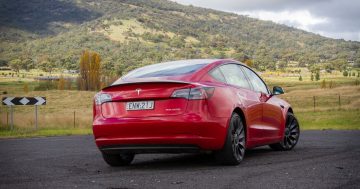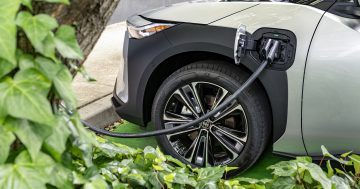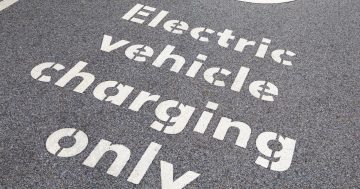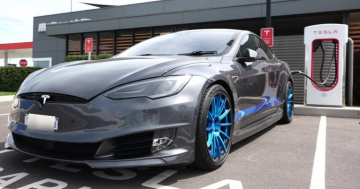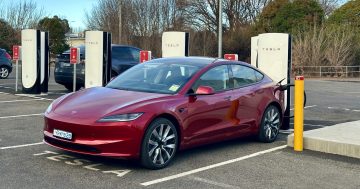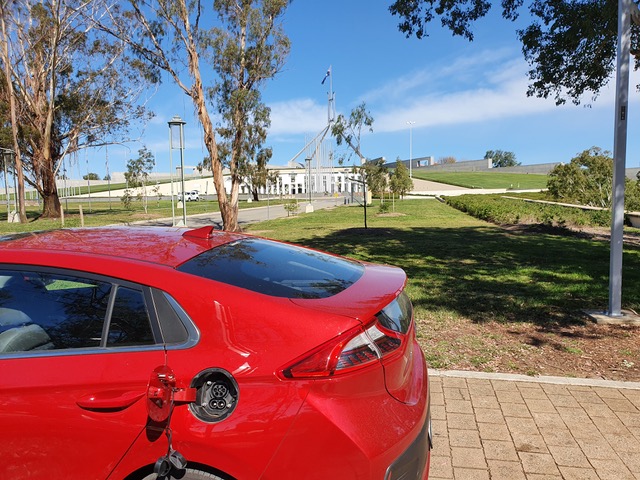
An electric Hyundai Ioniq outside Parliament House. Australia needs to power up. Photo: File.
It’s generally accepted that if you want to encourage something you don’t slap a tax on it. Yet both South Australia and Victoria have decided to impose a road user charge on electric vehicles despite having targets of reaching net-zero emissions by 2050.
The ACT is more ambitious, aiming for 2040, and has a range of incentives to take up EVs, understanding that transport is the next big sector to attack after achieving 100 per cent renewable energy sources for electricity.
Victoria plans to impose a 2.5 cent a kilometre charge on EVs and a 2c/km charge on plug-in hybrid cars from next July. South Australia is yet to announce a rate.
The new charges have appalled EV advocates who fear they will only put the brakes on the fledgling sector by making them more expensive at a time when scaling up will lead to cheaper vehicles and accelerate the rollout of charging networks.
An analysis by Dr Jake Whitehead, from the University of Queensland’s Dow Centre for Sustainable Engineering Innovation, says Federal Government modelling suggests EVs would make up about 65 per cent of new car sales by 2050, based on existing policies, but this would fall to 40 per cent or 4.9 million vehicles under a 2.5c/km tax rate.
It also found a 2.5c/km tax would equate to a $4,500 increase in a vehicle’s purchase price.
Advocates also fear that combined with the inertia at Commonwealth level, the new charges will mean Australia being left behind as other nations such as the UK plant the foot and ban the sale of new petrol and diesel cars by 2030.
The issue is falling revenue from fuel excise, which doesn’t go directly to roads but generally equates to the amount spent on them.
EV drivers using our roads should pay their fair share and, in any case, why should those who can afford to buy an electric vehicle get a free ride? So the arguments go.
It also has been argued that implementing a road user charge now while there are so few on the road prepares the ground for future widespread application and allows drivers to get used to the idea.
These are, of course, finding favour with governments that need to maintain their roads.
What is lost in this traffic jam of arguments about road funding and equity, is the race against time to lower emissions enough to avert catastrophic global warming.
If that is the primary goal, then the sooner EVs become cheap enough for people on average incomes to buy and for charging stations to proliferate the better.
A kneejerk imposition of a road user charge will only impose an unnecessary barrier to people wanting to make the transition, and go-it-alone decisions will also create a patchwork regime across Australia.
The states and territories and the Commonwealth need to work together to agree on the timely introduction of road user charges and appropriate incentives to achieve a transition to non-carbon transport that makes a real dent in emissions.
Now is the time to help people into the EV driver seat as much as possible, as well as think about how the decline and eventual demise of fuel excise needs to be managed.












